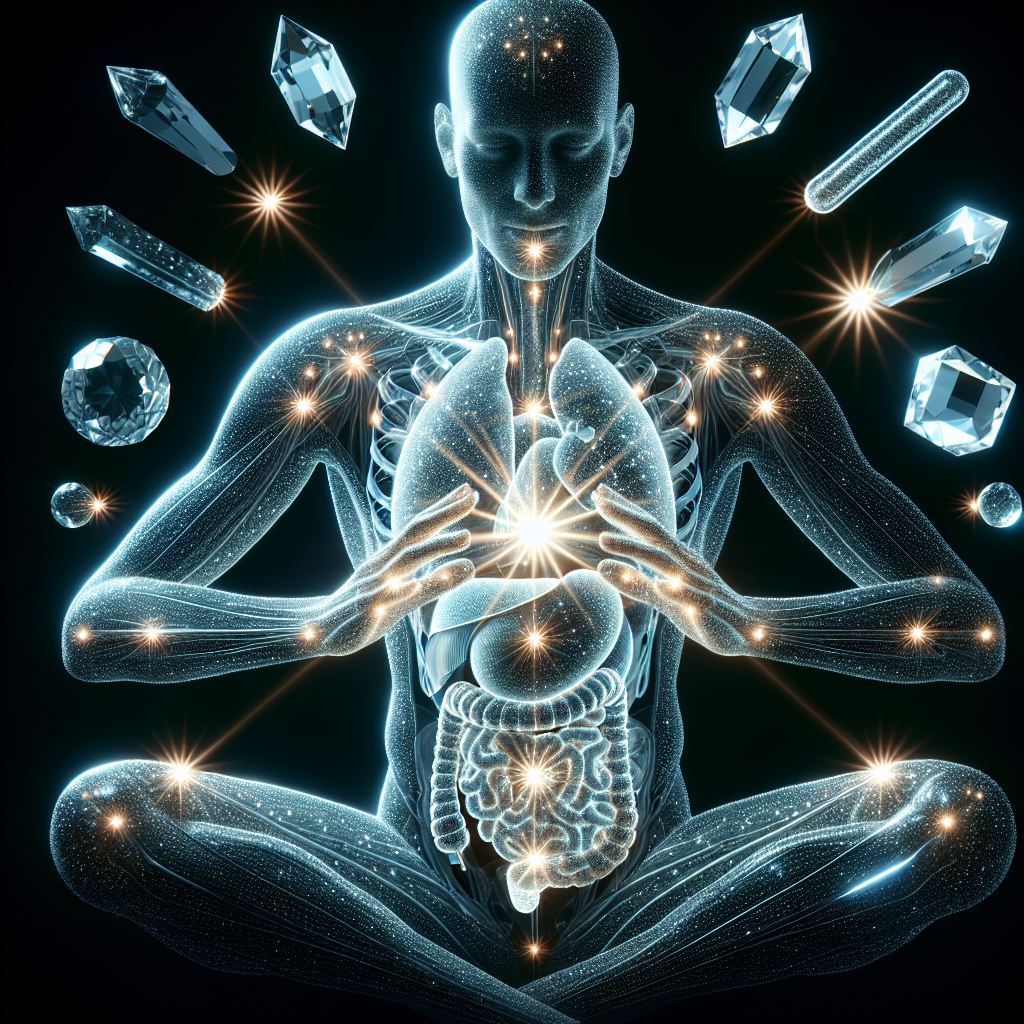In search of optimal health, it is imperative to understand the essential minerals the body requires. Amongst these vital elements, there is one that stands out as the most crucial to our well-being. In this article, we will explore and uncover the mineral that your body needs most. Hold onto your seat as we embark on a journey to unveil the secrets of optimum nutrition!

The Role of Minerals in the Body
What are minerals?
Minerals are essential nutrients that the body needs to function properly. They are inorganic substances that cannot be produced by the body and must be obtained through diet. They are needed in small amounts, but their role in various bodily functions is crucial. There are two main types of minerals: macro minerals and micro minerals, also known as trace minerals.
The importance of minerals in the body
Minerals play a vital role in almost every aspect of our overall health and well-being. They are involved in numerous physiological processes, including the formation of bones and teeth, regulating muscle function, supporting nerve transmission, maintaining proper fluid balance, and assisting in the production of hormones and enzymes. Minerals also play a critical role in maintaining a healthy immune system and promoting efficient metabolism. Without these essential nutrients, our bodies would not be able to function optimally.

Macro Minerals
Calcium
Calcium is the most abundant mineral in the body and is responsible for the formation and maintenance of strong bones and teeth. Along with phosphorus, it provides structural support to the skeletal system, ensuring it remains strong and healthy. Calcium is also involved in muscle contraction, nerve function, blood clotting, and regulating blood pressure.
Phosphorus
Working in tandem with calcium, phosphorus plays a key role in promoting bone health. It is an essential component of DNA, RNA, and ATP (adenosine triphosphate), the molecule responsible for storing and releasing energy in the body. Phosphorus also aids in kidney function and maintaining the body’s acid-base balance.
Magnesium
Magnesium is involved in over 300 biochemical reactions in the body, making it an essential mineral for overall health. It plays a crucial role in energy production, protein synthesis, muscle and nerve function, and maintaining normal heart rhythm. Magnesium also helps regulate blood sugar levels, blood pressure, and supports bone health.
Sodium
Sodium is vital for maintaining proper fluid balance in the body, as well as nerve transmission and muscle function. It helps control blood pressure and blood volume and ensures that cells are properly hydrated. However, excessive sodium intake can lead to health problems such as high blood pressure, so it is important to consume it in moderation.
Potassium
Potassium is necessary for proper muscle and nerve function, as well as maintaining a healthy heart rhythm. It helps balance fluid levels in the body, supports kidney function, and plays a role in bone health. Adequate potassium intake is especially important for individuals with high blood pressure, as it can help lower blood pressure levels.
Chloride
Chloride, primarily obtained from table salt (sodium chloride), is essential for maintaining fluid balance, aiding in digestion, and transmitting nerve impulses. It also plays a role in the production of stomach acid, which is necessary for proper digestion and nutrient absorption.

Micro Minerals
Iron
Iron is a crucial component of hemoglobin, the protein in red blood cells that carries oxygen throughout the body. It is essential for oxygen transport, energy production, and supporting overall growth and development. Iron is particularly important for women of childbearing age, as they are at a higher risk of iron deficiency due to menstruation and pregnancy.
Zinc
Zinc is involved in numerous enzymatic reactions and plays a vital role in immune function, cell division, wound healing, and DNA synthesis. It also supports normal growth and development during childhood and adolescence. Zinc deficiency can impair immune function and lead to delayed wound healing and growth retardation.
Copper
Copper is essential for the production of red blood cells and maintaining a healthy immune system. It also plays a role in collagen production, which is necessary for healthy skin, bones, and connective tissues. Copper acts as an antioxidant, helping to protect cells from damage caused by free radicals.
Iodine
Iodine is primarily known for its role in thyroid function and the production of thyroid hormones. These hormones regulate metabolism and are crucial for growth and development, particularly during pregnancy and infancy. Iodine deficiency can lead to thyroid disorders, including goiter and hypothyroidism.
Selenium
Selenium is an important antioxidant that helps protect cells from damage caused by free radicals. It is involved in thyroid hormone metabolism, immune function, and DNA synthesis. Selenium also plays a crucial role in supporting fertility and reproductive health.

Water-Soluble Minerals
Potassium
Potassium is a water-soluble mineral that helps maintain proper fluid balance, nerve function, and muscle contraction. It also plays a role in regulating blood pressure and supporting heart health.
Sodium
Sodium, another water-soluble mineral, is important for maintaining fluid balance and transmitting nerve impulses. However, excessive sodium intake can contribute to high blood pressure, so it is essential to consume it in moderation.
Chloride
Chloride, the third water-soluble mineral, is necessary for maintaining fluid balance, aiding in digestion, and transmitting nerve impulses. It is commonly obtained from table salt (sodium chloride).
In conclusion, minerals play a critical role in maintaining optimal health and well-being. From macro minerals like calcium and phosphorus to micro minerals like iron and zinc, each mineral has unique functions and requirements within the body. It is important to ensure a balanced and varied diet to meet the body’s mineral needs and prevent deficiencies. By understanding the importance of minerals and incorporating them into your diet, you can support your body’s overall functioning and promote long-term health.


